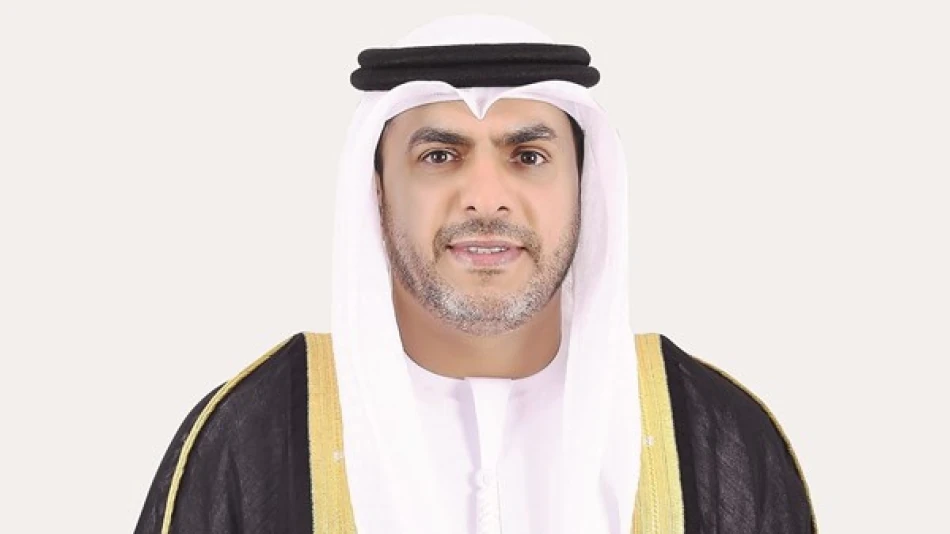
Minister of Justice Empowers Youth: A National Vision for Prosperity
UAE Positions Youth at Heart of 2025 "Year of Community" Initiative
The UAE's Justice Minister has outlined an ambitious vision placing young Emiratis at the center of national development as the country prepares for 2025's "Year of Community" campaign. The initiative signals a strategic shift toward deeper youth integration in governance and economic transformation, potentially setting a new regional benchmark for youth empowerment policies.
Strategic Youth Integration Beyond Rhetoric
Abdullah Sultan bin Awad Al Nuaimi, UAE Minister of Justice, emphasized that International Youth Day represents more than ceremonial recognition—it reflects the leadership's commitment to positioning youth as the "driving force" behind innovation and societal cohesion. The designation of 2025 as the "Year of Community" under the slogan "Hand in Hand" places youth participation at the core of national initiatives.
This approach diverges from traditional top-down governance models common across the Gulf region, instead embracing collaborative frameworks that could influence policy-making processes for decades to come.
Legislative and Institutional Framework Development
Entrepreneurship and Innovation Focus
The Minister highlighted the state's development of comprehensive legislative and institutional environments designed to unleash youth potential across entrepreneurship, innovation, and volunteer work sectors. This represents a calculated investment in human capital that aligns with the UAE's economic diversification goals beyond oil dependency.
The Ministry of Justice's collaboration with relevant authorities to support youth-focused initiatives suggests a coordinated government approach, potentially creating synergies between regulatory frameworks and entrepreneurial ambitions.
Regional and Global Context
The UAE's youth empowerment strategy mirrors successful models in Singapore and parts of Europe, where governments have integrated younger demographics into policy development processes. However, the Gulf context presents unique opportunities, given the region's young population demographics and substantial sovereign wealth resources.
Unlike neighboring countries that have focused primarily on employment generation, the UAE appears to be cultivating leadership capabilities and civic engagement among youth populations—a distinction that could yield long-term competitive advantages in regional influence and economic innovation.
Economic and Social Implications
Investment in Future Leadership
The emphasis on volunteer work and community participation suggests the UAE is building social cohesion mechanisms that could prove crucial as the country navigates demographic transitions and economic transformation pressures. By institutionalizing youth involvement in public life, the government is potentially creating sustainable governance models that extend beyond current leadership structures.
For investors and international partners, this youth-centric approach signals policy continuity and innovation capacity that could enhance the UAE's position as a regional hub for technology, finance, and entrepreneurship. The integration of youth perspectives into national planning processes may also improve policy responsiveness to global trends and market shifts.
Looking Ahead: Measurable Impact
The success of the 2025 "Year of Community" initiative will likely be measured not just in participation rates, but in tangible policy outcomes and economic contributions from youth-led initiatives. The UAE's track record of translating national campaigns into concrete results—from happiness initiatives to space programs—suggests this youth empowerment focus could produce significant institutional changes and economic opportunities.
Most Viewed News

 Layla Al Mansoori
Layla Al Mansoori






